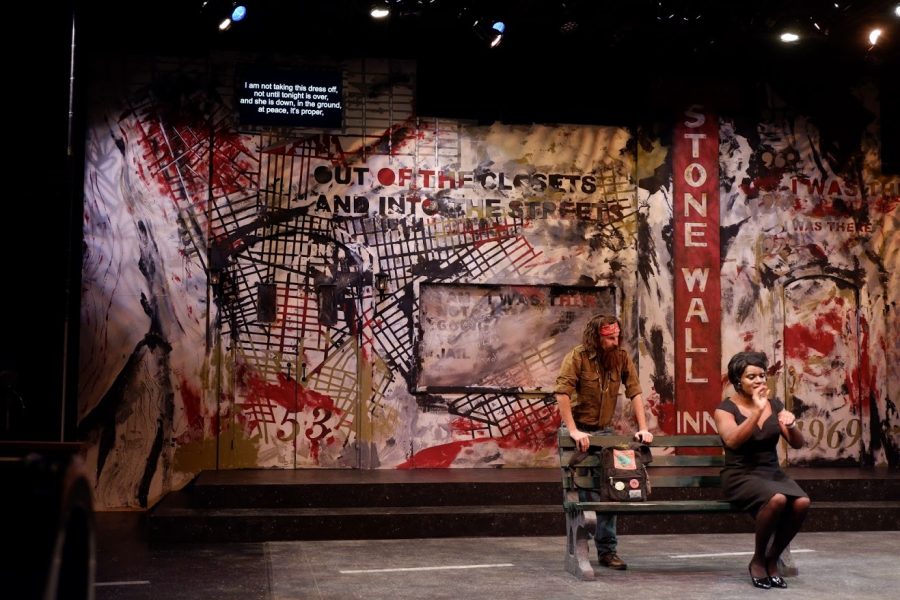Krannert plays promote inclusivity by adding supertitles
Acting students Brandon Burditt (right) and Andrew Morrill (left) perform in “Hit the Wall” at the Studio Theatre at the Krannert Center for the Performing Arts on Saturday. Supertitles — subtitles above the stage — enhance audience experience.
February 4, 2019
For the first time, the Krannert Center for the Performing Arts will provide supertitles for an ongoing play, “Hit the Wall,” enhancing the audience experience.
Different from the commonly known subtitles, supertitles are suspended above the performance. Having supertitles for plays can help deaf and hard-of-hearing audience members and those who are not native English speakers.
Bridget Lee-Calfas, advertising and publicity director of Krannert, said in an email, “For this particular show, the need arose from the fact that one of the cast members is deaf and so there was a greater demand for hearing-assistance services, including closed captioning. It’s wonderful that the international student community, who have always been such an important part of the Center’s ecosystem, also can benefit from this greater accessibility.”
Lee-Calfas said Krannert wants to deliver students the best possible patron experience, so it provides the captions instead of only interpreters, which are also a vital part of the Krannert accessibility services.
Madeline Whitesell, production member of “Hit the Wall,” said in an email that in the past few years, the theater department has started a new mission of radical inclusion for its classes and performances, the effort is making its shows more accessible to people who are non-native English speakers and also people who are differently-abled.
Get The Daily Illini in your inbox!
“It is particularly useful for this show to have captioning because the language is very poetic. The way the characters speak is akin to beat poetry, and there are many lines that overlap in the dialogue,” Whitesell said.
Weikang Chen, junior in Engineering, said in an email, “I have never seen a show with supertitle added, thus the supertitle surprised me at first. I believe it is a really good way to make the show more understandable for the audience, especially for someone whose first language is not English.”
Chen said the supertitles were necessary for helping him understand the play.
Whitesell also mentioned another reason for the change is one of their Master of Fine Arts acting students, Andrew Morrill, is a strong advocate for deaf talent and accessible arts and education. She said Morrill pushed the department and University as a whole to become more accessible for deaf students.
Morrill said in an email he had the urge and initiative to help those students with hearing problems when he decided to start his career as an actor.
“We, the deaf and hard of hearing people, are part of the society, too. Hearing people go to theatre and enjoy the show anytime, anywhere, whatever they want to. Why can’t we have that the same? Therefore, we push all aspects of theatrical experience to be accessible for all people. Supertitles is an excellent tool to open the door for the deaf and hard of hearing theatergoers,” Morrill said.
Morrill said theater can educate and present authentic stories to the audience. The effort to help the deaf and hard-of-hearing community can inspire its creativity and critical thinking skills.
“I hope that this accessible initiative will become as a visible priority for all theatre companies across the country where they can invite all possible groups of audience and ensure the inclusiveness,” he said.







